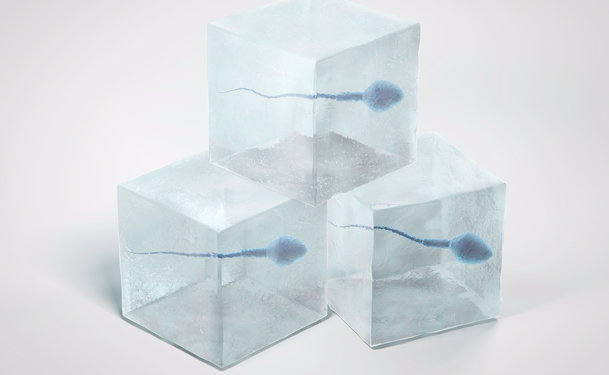Sperm banking is not just for men that want to help couples with infertility, or individuals, conceive. Sperm banks also store sperm long-term for men who want to be sure that they will be able to have a child later on. To help you decide if sperm banking is right for you, we have answered some of the most common questions.
Sperm Donation
How can I become a sperm donor?
Each sperm bank has its own specific procedures for potential sperm donors. For most, you will need to start by filling out an application. If you pass this initial step, you will be invited for a more in-depth screening.
What happens during a screening appointment?
You will visit a sperm bank’s laboratory and provide a semen specimen for testing. You may be asked to provide more information about your personal medical history and your family’s medical history, or undergo a medical exam.
Will I be paid for my sperm donations?
This varies, but sperm banks may compensate you for each specimen you provide. You may be paid after you provide the specimen, or after the specimen has been fully tested, or a combination of both.
How often can I donate sperm?
Once you are enrolled in a sperm donor program, most sperm banks ask that you donate at least once a week. You may donate more often if you have high-quality specimens.
Do I need to refrain from sex before donating?
Yes. You will need to avoid ejaculation — either through sex or masturbation — 48 to 72 hours before your provide a specimen. This ensures that your specimen has a high sperm count. If you don’t abstain for at least that long, your specimen samples may not be high enough in quality, and you may not be compensated.
Why do I have to provide information about my height, weight, ethnicity, education and occupation?
Some sperm banks collect this information for diversification purposes. Families may also be looking for sperm from donors with a particular background, like country of origin or at least a college-level education.
Sperm Storage
Who needs long-term sperm storage services?
Sperm storage is suitable for men with low fertility or for men who are undergoing a medical procedure that potentially decreases their fertility, such as vasectomies, cancer treatments, gender reassignment or others. Men who are in high-risk occupations may use sperm storage to ensure that they are able to have children later. This includes athletes, military personnel, or men working around toxic chemicals or radioactive materials. Sperm storage is also appropriate for men who plan on donating sperm at a later date to a couple or individual that they know.
What is involved with storing my own sperm?
You will visit a sperm bank laboratory and provide a semen sample. The sample is tested before it is frozen. This includes freezing a small amount of it to see how well the sperm survive the freezing and thawing process. The laboratory is then able to tell you which assisted reproduction technologies your frozen sample is suitable for.
Can I bank my sperm by mail?
Some sperm banks allow you to send your semen samples to the laboratory through overnight priority mail. You are given a sterile container to deposit your semen, and a shipping container to send it to the sperm bank.
How are my sperm samples stored?
Your semen specimens are frozen slowly and stored at very low temperature in liquid nitrogen tanks. These tanks are designed to maintain a constant temperature and equipped with alarms in the event of a malfunction. Your specimen is also be shipped in liquid nitrogen to a physician when it is ready to be used.
How long will my frozen sperm last?
When properly stored, frozen sperm can last indefinitely. Successful pregnancies have resulted from sperm that were frozen for 20 years before being thawed for insemination.
How many semen samples should I store?
Most sperm banks recommend that you store at least two semen samples that are collected on separate days. If you do not have time before a medical procedure to provide two samples, your one sample is divided into multiple tubes that can be used for separate fertility procedures.


